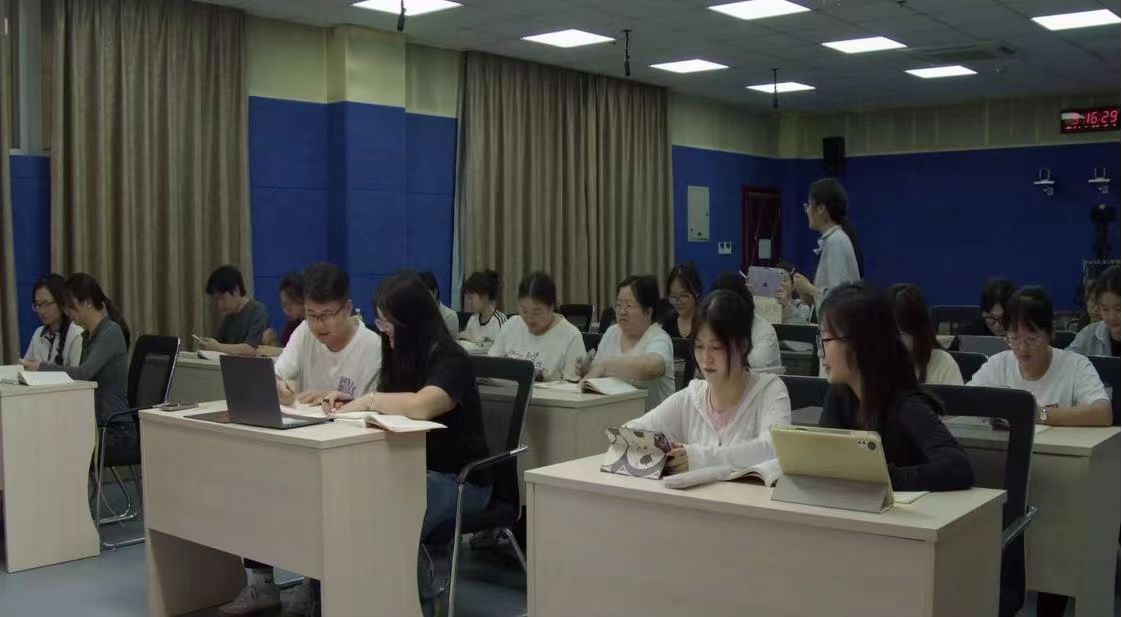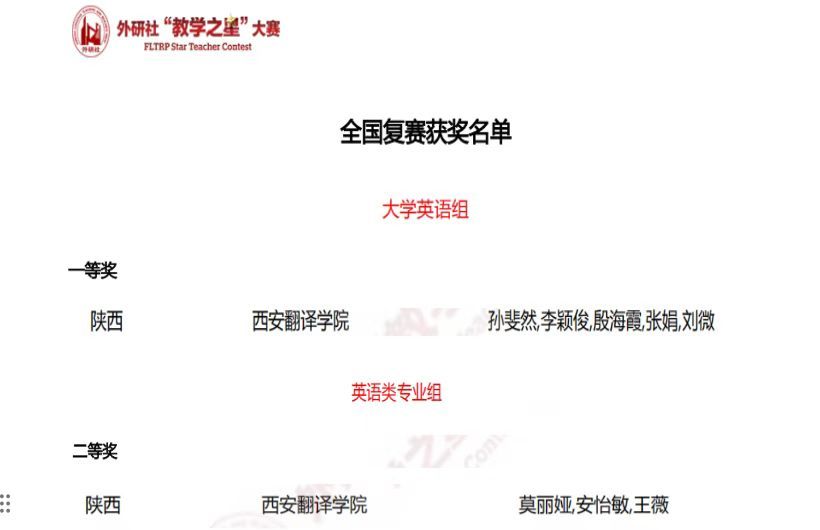The 2025 FLTRP “Teaching Star” Competition has successfully concluded. Teams from our university achieved outstanding results: the team composed of Sun Feiran, Li Yingjun, Yin Haixia, Zhang Juan, and Liu Wei from the College English Teaching Center of the School of English won the First Prize in the National Second Round (College English Group), while the team of Mo Liya, An Yimin, and Wang Wei from the Department of English secured the Second Prize in the National Second Round (English Major Group).
The FLTRP “Teaching Star” Competition is a large-scale public welfare event for foreign language teachers nationwide. It aims to lead teaching development, innovate pedagogical concepts, and facilitate methodological exchange, characterized by professional standards, rigorous procedures, and scientific evaluation. Recognized across China’s higher education sector, it has been consistently included in the “National College Teacher Teaching Development Index” by the China Association of Higher Education. This year’s competition, co-organized by the National Research Center for Foreign Language Education (Beijing Foreign Studies University) and the China Foreign Language Assessment Center, focused on the theme: “Effective Use of Foreign Language Teaching Materials: Narrating China, Connecting the World.”
Teaching materials serve as a crucial foundation for nurturing talent, and teachers’ in-depth understanding and scientific application of these materials are key to ensuring educational effectiveness. In the new era, there is an urgent need to cultivate high-caliber international talents capable of telling China’s stories well to build a Chinese discourse system and enhance global communication. Foreign language teachers must align with national strategies, leveraging high-quality materials to explore digital-intelligent integration and deepen the “Three Advances” teaching initiative and the “Understanding Contemporary China” education program. This approach helps students improve their English proficiency, intercultural communication, international dissemination, and ability to narrate China’s stories in professional contexts, thereby fostering mutual learning among civilizations and contributing to the building of a global community with a shared future.
Since the competition guidelines were released in April, the School of English leadership has prioritized the event, coordinating preparations and swiftly forming professional teams. During the preparation phase, team members demonstrated collaborative spirit and problem-solving determination, systematically refining teaching designs—from framework construction to detail optimization—through multiple rounds of discussion and iteration. Their submissions thoroughly addressed the competition theme, deconstructed textbook systems, and tailored approaches to students’ actual learning needs. The teams innovatively developed a teaching model of “real-world communication scenario+scaffolded facilitation activities” , designing progressive skill-building tasks to enhance knowledge internalization and output. They also integrated digital-intelligent tools and a “Teacher-Student Collaborative Assessment (TSCA)” system, combining smart data analysis with bidirectional feedback to create a closed-loop teaching process that elevates educational outcomes.
Amid fierce competition from 565 teams nationwide, our faculty stood out with their solid theoretical grounding, innovative teaching models, and outstanding on-site performance, ultimately securing top honors. Their success fully reflects the School of English’s professional strength in foreign language teaching reform and practice.
This achievement highlights our university’s foreign language faculty’s profound teaching expertise, exceptional pedagogical capabilities, and cutting-edge educational concept. The participating teachers demonstrated deep understanding and meticulous dedication to education through their robust professionalism and innovative approaches. Moving forward, the School of English will treat this accolade as a new starting point, anchoring its core goals in teaching reform and establishing a long-term mechanism to “promote teaching through competitions and empower faculty through research.” Initiatives include:
- Deepening classroom innovation and integrating modern educational technology to build a more effective talent development system;
- Creating diversified teacher development platforms, such as research incubators and teaching workshops, to enhance instructional and research capabilities.
Through this dual-drive model, the school aims to cultivate high-quality, application-oriented talents with global perspectives, practical skills, and innovative mindsets, injecting robust momentum into comprehensive educational reform and regional socio-economic development.
Reporter: Sun Feiran

